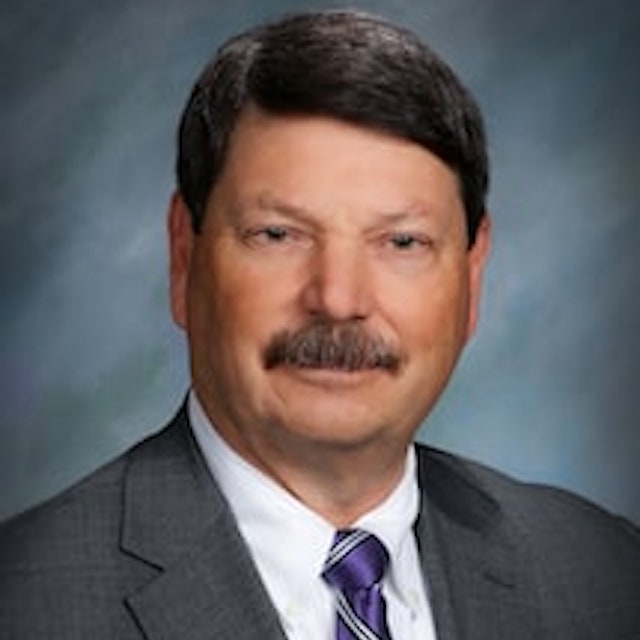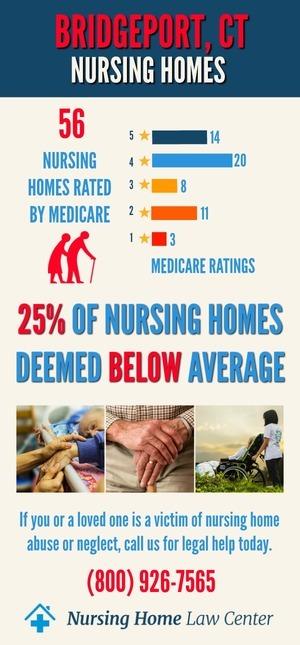The Nursing Home Law Center is committed to providing the legal resources necessary to hold negligent facilities accountable.
Bridgeport, CT Nursing Home Abuse Lawyer

Licensed in Connecticut
Families trust assisted living facilities to provide adequate care for their elderly loved ones, but unfortunately, many nursing home residents experience various forms of abuse and neglect.
In such cases, it is essential to seek legal representation from an experienced Bridgeport nursing home abuse lawyer. A qualified attorney can help victims and their families hold negligent nursing homes accountable and pursue justice.
Why Hire Nursing Home Law Center
At Nursing Home Law Center, we are dedicated to securing justice and fair compensation for victims of nursing home abuse. Our Connecticut nursing home abuse lawyers have an impressive history of handling these cases and achieving substantial settlements and verdicts.
We carry out comprehensive investigations to ensure that every aspect of the abuse, including medical expenses, emotional distress, and other related damages, is thoroughly addressed. With our extensive knowledge of nursing home abuse claims, we handle the intricacies efficiently and fight relentlessly to safeguard your rights.
We offer compassionate and clear support, ensuring you and your loved ones remain informed, protected, and confident at every stage.
Types of Cases Handled by Our Bridgeport Nursing Home Abuse Lawyers
Nursing home abuse refers to any action by nursing home staff that causes harm or distress to residents. Such abuse can manifest in various forms, each with significant consequences for the victims. Below are the primary types of cases our nursing home lawyers handle:
Physical Abuse
Physical abuse involves the intentional use of force that results in bodily injury or pain to nursing home patients. This action includes hitting, slapping, pushing, or improper use of physical restraints.
Mental and Emotional Abuse
Mental and emotional abuse can manifest in various ways, including verbal threats, humiliation, intimidation, or deliberate isolation. Such abuse inflicts severe psychological trauma, often resulting in residents experiencing heightened fear, chronic anxiety, deep depression, or withdrawal from social activities.
Sexual Abuse
Sexual abuse involves any non-consensual sexual contact with a nursing home resident. This misconduct can include unwanted touching, assault, or coercion.
Medical Malpractice
Medical malpractice in nursing facilities occurs when residents do not receive the standard level of medical care, leading to preventable injuries. Common examples include bedsores, medication errors, and failure to treat medical conditions properly. These lapses can result in serious health complications for residents.
Negligence
Nursing home neglect occurs when staff members do not meet the required standards of care, resulting in harm or distress to residents. This negligence can take many forms, including poor hygiene, malnutrition, dehydration, or unsupervised wandering (elopement).
Financial Abuse
Financial exploitation involves the illegal or unauthorized use of a nursing home resident’s funds, assets, or property. This abuse can include forging signatures, coercing residents into altering wills, or unauthorized credit card charges.
Wrongful Death
In the most tragic cases, elder abuse and nursing home neglect can lead to the wrongful death of a resident. This loss can result from severe physical assault, medication errors, or negligence. Families who lose a loved one due to wrongful death may pursue legal action to hold the nursing home accountable and seek compensation for their loss.
Understanding Your Legal Rights
Nursing home residents have fundamental legal rights protected under federal and state laws to ensure their safety and dignity.
One of the most important federal regulations is the Nursing Home Reform Act of 1987, which establishes residents’ right to receive proper care and live free from abuse and neglect. This act mandates that nursing homes provide services that promote the highest possible quality of life for residents.
Connecticut also has state-specific regulations that strengthen these protections, ensuring that nursing home facilities maintain acceptable standards of care. These laws empower residents and their families to take legal action if their rights are violated.
When abuse or neglect occurs, a claim can be filed not only by the nursing home resident but also by family members or legal representatives acting on behalf of the resident. This step is vital to hold nursing home staff and facilities accountable and prevent further harm to other residents.
How Our Bridgeport Nursing Home Abuse Attorneys Can Help
Our nursing home attorneys have extensive experience handling cases involving suspected abuse, neglect, and other forms of mistreatment. We are committed to aggressively fighting for the rights of elderly residents and their families. Below are some of the key services we provide:
Free Case Evaluation
We offer a free initial consultation to review the details of your case and help you understand your legal options. This step allows families to ask questions and receive professional guidance without upfront costs.
Case Investigation
Our attorneys conduct thorough investigations to gather evidence of abuse or neglect. This process may include reviewing medical records, speaking with witnesses, and consulting with experts to build a strong case.
Filing the Claim
Once sufficient evidence is collected, we handle all aspects of filing the legal claim against the responsible parties. This approach ensures the claim is properly prepared and submitted within the required timeframes.
Settlement Negotiation
We strive to negotiate fair settlements that fully address the medical costs, emotional trauma, and other damages experienced by the victim. Our lawyers are skilled negotiators who work tirelessly to secure compensation.
Trial Representation
Our attorneys are fully prepared to represent clients in court if a fair settlement cannot be reached. We have the legal expertise to present a compelling case and fight for justice and maximum compensation.
Common Signs of Elder Abuse Among Nursing Home Residents
Bridgeport has 80 Medicare-certified nursing facilities, with 28 facilities (35%) rated below or much below average overall. Specifically, 30 homes (37.5%) fall short in health inspections, and 26 (32.5%) have inadequate staffing levels. Twenty-six facilities (32.5%) are rated poorly in quality measures. [1]
Recognizing the signs of elder abuse is critical to protecting the safety and well-being of nursing home patients. Some common indicators include:
- Unexplained Injuries: Bruises, cuts, fractures, or other physical injuries that lack a reasonable explanation.
- Poor Hygiene: Residents appear unkempt, with dirty clothing or bedding, and poor personal hygiene.
- Sudden Weight Loss: Rapid or significant weight loss, which could indicate malnutrition or dehydration.
- Emotional Withdrawal: A marked change in behavior, such as becoming unusually quiet, fearful, or withdrawn from social activities.
- Bedsores: Pressure sores that develop due to prolonged periods without proper repositioning.
- Financial Irregularities: Unexplained bank withdrawals, missing personal items, or sudden changes in financial documents.
- Reluctance Around Staff: Signs of discomfort, fear, or anxiety when certain staff members are present.
The worst-rated nursing homes in Bridgeport include:
| Apple Rehab Laurel Woods | Apple Rehab Shelton Lakes |
| Apple Rehab West Haven | Arden Care Center |
| Beacon Brook Center for Health & Rehabilitation | Carolton Chronic & Conv Hospital |
| Cassena Care at Norwalk | Civita Care Center at Danbury |
| Civita Care Center at Milford | Hewitt Health & Rehabilitation Center, Inc |
| Laurel Ridge Health Care Center | Montowese Center for Health & Rehabilitation |
| New Haven Center for Nursing & Rehabilitation LLC | Northbridge Health Care Center |
| Saint John Paul II Center | Shady Knoll |
| Southport Center for Nursing & Rehabilitation LLC |
Contact a Bridgeport Nursing Home Abuse Lawyer Today!
At Nursing Home Law Center, our experienced nursing home attorneys are dedicated to advocating for the rights of residents and their families.
With a proven track record of successfully handling cases involving elder abuse, nursing home negligence, and wrongful death, we provide comprehensive legal support to secure compensatory damages. We work on a contingency fee basis, so you don’t have to worry about any upfront payment.
If you suspect that your elderly loved one is a victim of nursing home abuse, don’t wait. Contact us today for a free consultation. Let us help you hold negligent parties accountable and seek the compensation and justice your family deserves.
Call us at (800) 926-7565 or fill out our contact form.
References: [1] Medicare


